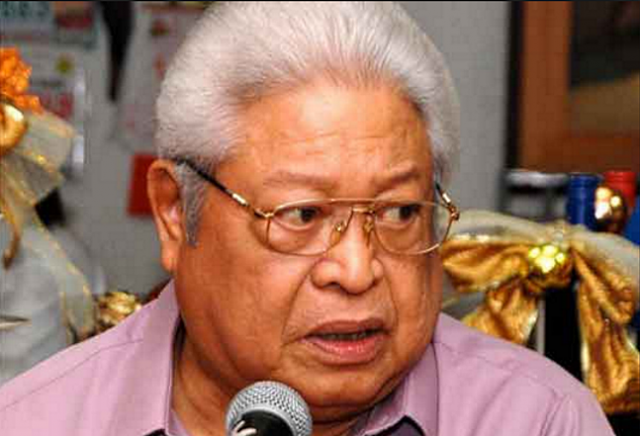MANILA – Not quite the same. That’s the response of Albay Rep. Edcel Lagman, who has forged a rare united front with Speaker Pantaleon Alvarez in pushing absolute divorce, to remarks from opposers that the latter is not necessary since annulment of marriage is allowed in the country.
Annulment and legal separation do not grant complete relief to spouses in totally dysfunctional or abusive relations because annulment only covers causes “existing at the time of the marriage” and does not encompass those occurring during the marriage and legal separation does not allow covered spouses to remarry, unlike absolute divorce, Lagman said Sunday in a statement.
“Annulment is only a partial remedy as it does not cover the more prevalent grounds which may occur or supervene during the marriage like insanity, impotency, affliction of a sexually-transmissible disease and those covered by legal separation on (a) violent and grossly abusive behavior; (b) morally corrupt practice; (c) imprisonment for more than six years; (d) drug addiction or habitual alcoholism; (e) homosexuality; (f) contracting a bigamous marriage; (g) marital infidelity; (h) attempt against the life of the other; and (i) abandonment for more than one year,” he added.
All of these causes, which may occur after the marriage, “debase the marital union when they persist beyond solution,” according to the opposition lawmaker.
Though they have tangled with Alvarez and the supermajority on political issues like the Mindanao martial law and extra-judicial killings, Lagman and the bloc of militant party-list representatives are with Alvarez on the divorce issue.
The opposition to divorce in the chamber is led by, among others, Buhay party-list Rep. Lito Atienza and Minority Leader Danny Suarez.
UPHILL IN SENATE
While Alvarez is confident of passing the divorce bill with the supermajority in the House, the bill could face an uphill battle in the Senate.
At the weekend, Senate President Aquilino Pimentel III was quoted saying the laws on annulment simply needed strengthening, while other lawmakers described absolute divorce is providing a “vendo machine” type of relief that could weaken the institution of marriage. Several other senators like Majority Leader Vicente Sotto III have also publicly opposed it.
STATE PACIFIED CHURCH?
Annulment of marriage, legal separation and nullification of marriage were provided for in the Family Code in lieu of absolute divorce to appease the Catholic Church, Lagman claimed.
In Te vs. Te, the Supreme Court admitted that the nullification of marriage due to psychological incapacity mirrored the Church’s canonical practice of dissolving marriages by avoiding the nomenclature of absolute divorce, Lagman pointed out.
The SC also added that by following the grounds for canonical dissolution of marriage, the civil law would be made consistent with canon law. The bill on absolute divorce, on the opther hand, “fearlessly and realistically calls a spade a spade,” Lagman stressed.
Why, he asked, “must the State pacify the Church to the extent of abandoning spouses in irreparable conflict situations and their distressed children in a house on fire?”
At dawn Saturday, church leaders in Manila and Cebu City led simultaneous rallies dubbed “Walk for Life” to protest extra-judicial killings and the move to legalize divorce. The rally at Quirino Grandstand was led by Archbishop Luis antonio Tagle; the one in Cebu, by Archbishop Jose Palma.
According to Lagman, “while the State protects and preserves marriage, it is also duty-bound to provide full relief to spouses and their children in irremediably broken and lost marriages.”
Due to the foregoing situations, absolute divorce must be a right or option of concerned spouses even as they still have the choice to secure annulment of marriage, legal separation or nullification of marriage under the provisions of the Family Code, which are not repealed, Lagman said.










